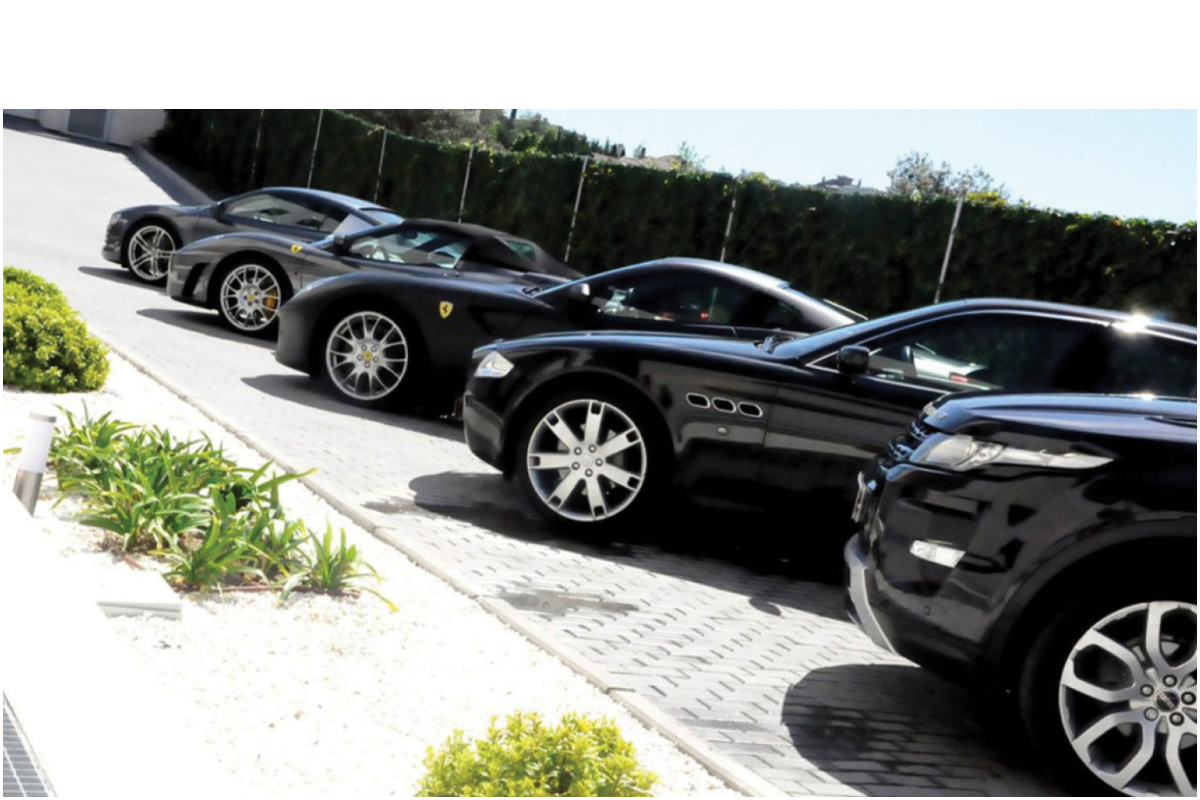
At Economy’s Cost
Domestic auto industry is on the verge of collapse as import of luxury vehicles continues
Islamabad: At a time when the automobile manufacturers and assemblers are on the verge of closing their plants due to falling sales caused by a crippling economy and diminishing foreign exchange reserves, the government has allowed the import of 2,200 luxury vehicles at a cost of $1.2 billion. These include luxury cars, high-end electric vehicles, and their parts.
The decision came during the first half of the current fiscal year, at a time when a ban on the import of ‘non-essential’ items has blocked the release of a large number of import consignments including industrial goods, auto parts and semi-assembled vehicles. The ban was aimed at forestalling the erosion of foreign exchange reserves that have already fallen to as low as $4 billion.
Sources in the automobile industry blame the decision on irresponsible officials having financial interests in facilitating the elite classes, while the government says the import orders were booked before the ban, and that it had come under pressure from authorities of the countries from where the imports were ordered.
“We fail to understand what the government is trying to do,” said a senior executive of a leading automobile manufacturer. “On the one hand it is allowing import of expensive luxury cars, and on the other the banks are unable to open letters of credit (LCs) to clear consignments already imported and awaiting delivery, citing non availability of dollars. This is forcing us to pay huge demurrage charges to our foreign suppliers.”
He said that the move amounted to “an act to sabotage against the local auto industry which is providing jobs to over four million people, contributing 4 percent to the country’s gross domestic product (GDP) and paying more than Rs 80 billion in direct and indirect taxes.”
The Pakistan Automobile Manufacturers Association has already sent a letter to the Ministry of Industries, apprising it of the gravity of the situation, because if the process of opening of the LCs is not resumed forthwith, there will be massive lay-offs not only in the auto industry but also in other industries, creating economic unrest in the country, he said.
He pointed out another government decision concerning the import of tractors, which he said was equally confusing. According to him, a top tractor producer, Millat Tractors, had already suspended its operations, while another leading manufacturer, Al-Ghazi Tractors, had reduced its production capacity to less than 20 percent.
Surprisingly, however, just days after Millat Tractors suspended its production, the Economic Coordination Committee of the Cabinet in a meeting held under the chairmanship of Finance Minister Ishaq Dar allowed the import of five-year old tractors.
“Instead of helping out the local industry which is in hot waters, the government is adding fuel to the fire by allowing the import of tractors that are no better than mere trash,” he said, adding that he feared that “in coming days the government may allow the import of reconditioned or used cars as well, thereby exposing the auto industry to the threat of paying demurrage charges that in some cases cost more than the value of the consignments.”
When contacted, an official of the Federal Board of Revenue (FBR) said that the government initially tried to block the import of the luxury cars in question, but since their import orders were placed when there was no restriction on the import of these vehicles, there was no legal ground for Customs to stop their import.
He explained that most of these brands included BMW, Oudi and Mercedes which are German brands, and so their major dealers, such as Dewan Group (BMW), Premiers Systems (Audi) and Shahnawaz Motors (Mercedes), exerted pressure on the government through German and the European Union diplomats. He admitted, however, that the government should have taken a decision in the light of its diminishing dollar reserves.
A top official of Indus Motors, the producer of Toyota vehicles, while commenting on the prevailing situation said, “the core issue pertaining to continuing import restrictions on CKD kits (auto parts imported for assembling) has proven catastrophic for the auto industry. Consequently, we are forced to operate at 40-45% of our capacity. Given the financial crisis that has already dampened the consumer demand, unless these restrictions are eased, plant closures may become inevitable.”
Indus Motors’ production plant remained shut during Dec 20-30. Similar was the case of another automobile manufacturer, Pak Suzuki Motor Company. One of its officials told Bol News that the shutdown was caused by the shortage of inventory, which was partly imported from abroad. It has since resumed production after the State Bank of Pakistan (SBP) assured it that all its consignments lying on the port will be cleared, he said.
As a result of the strict foreign exchange control, around 8,500 shipping containers carrying different consumer and industrial items have been stranded at the Karachi port. As per the customs data, over 95% of these containers are held up due to the non-opening of their LCs. This stands in an uneasy contrast against the swift clearance of luxury cars. Data shows that during the first six months of the fiscal year 2022-23, a total of 193 new cars have been imported. Of these, 25 vehicles fell within the category of 1,000cc-1,800cc, while four were above 1,800cc. The remaining 164 vehicles are mostly of luxury electric category.
According to the FBR data, around 1,990 more luxury vehicles were imported during this period under the 3-year-old category. And suspicious transactions are aplenty in these transactions, according to insiders. The import of certain vehicles allowed only for overseas Pakistanis is being misused by importers who pay up to Rs 10 million for a sports utility vehicle (SUV) to the passport owner in whose name the vehicle is imported.
Additionally, say experts, while these imports delivered a few billion rupees to the government in import duties, they cost the country hundreds of billion in foreign exchange. According to the FBR data. the revenue collected on the import of new vehicles stood at around Rs 2 billion, while that on used vehicles came to around Rs 7 billion. But the by allowing these transactions, the government allowed as much as $530.5 million, equal to Rs 118.2 billion, to flow out of the country as the price of these imports.
Catch all the National Nerve News, Breaking News Event and Latest News Updates on The BOL News
Download The BOL News App to get the Daily News Update & Live News.












 Read the complete story text.
Read the complete story text. Listen to audio of the story.
Listen to audio of the story.